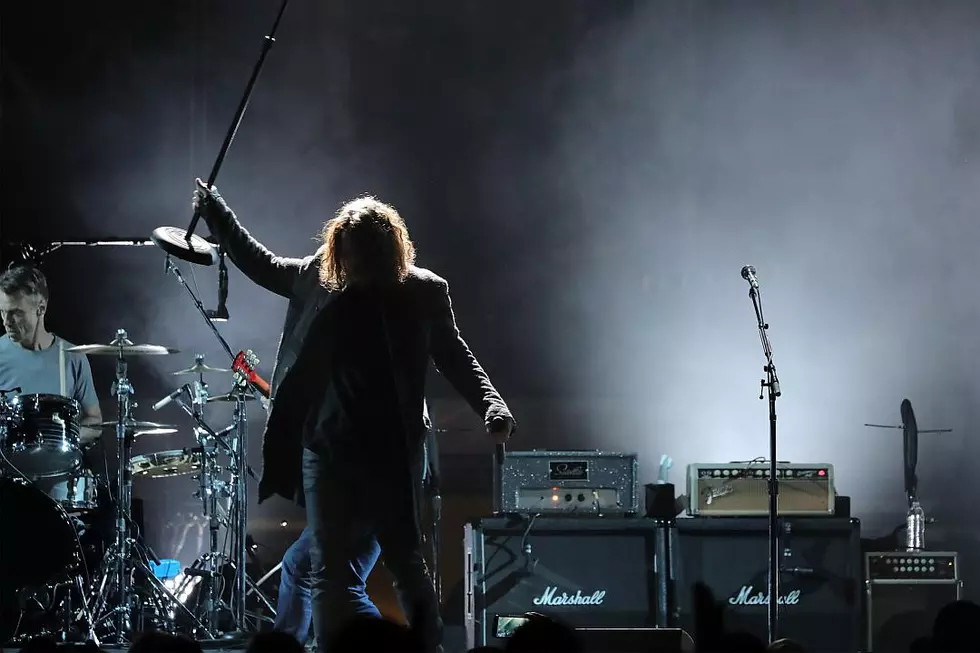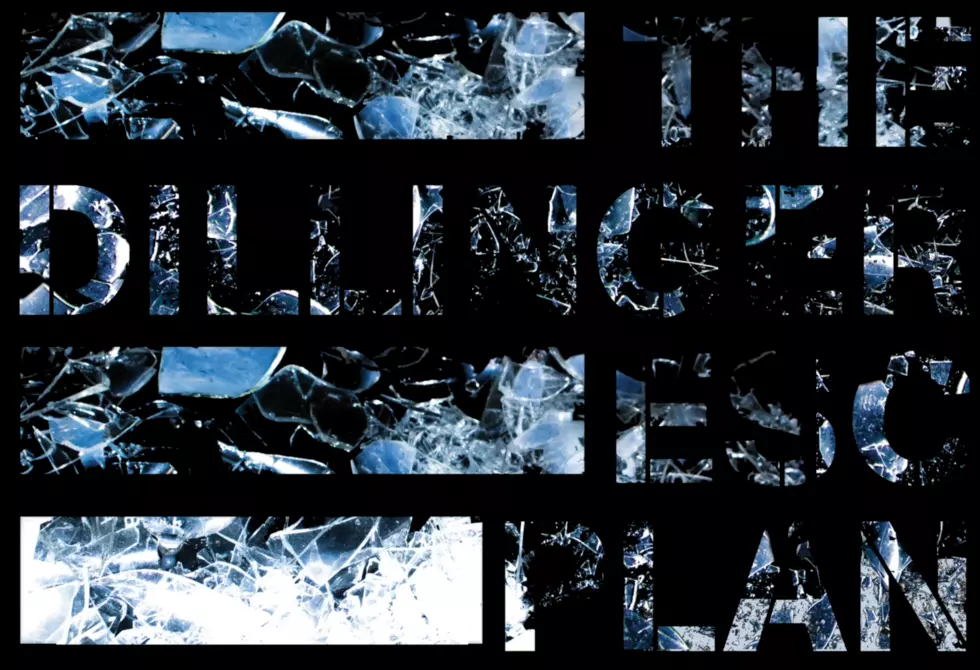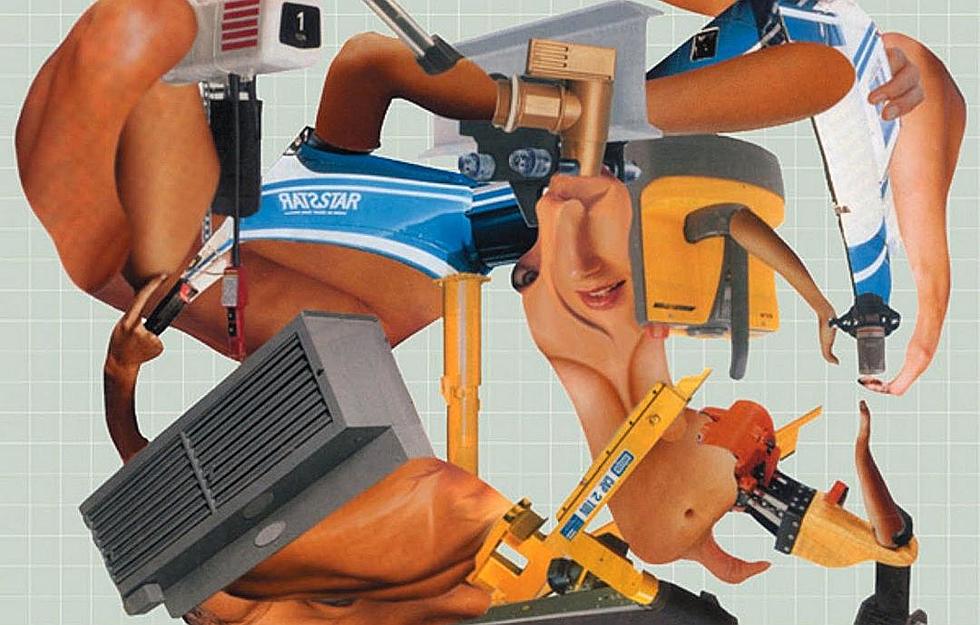
Soundgarden Opener on Chris Cornell’s Last Days and Lasting Influence
It was abrupt, but it hit like a 10-ton sledgehammer this morning: Chris Cornell, solo artist and lead singer / guitarist for Soundgarden, had passed away at age 52. While a definitive report on how he died is still being wrangled, at this early hour, the collective reaction was singular: shock and sadness.
In many ways, a band like Soundgarden shouldn’t have existed. They were a hard rock outfit with wildly progressive tendencies that would trade slots in the Billboard Top 40 with the likes of Christina Aguilera. Yet here we are, 30+ years and a zillion genres later, paying tribute to a band led by a man who changed the face of rock as we know it. Between Soundgarden and his solo material, he will be sorely missed.
Soundgarden were back in full swing as of late, writing new material and touring in support of several festival dates. Support on several of those gigs came from the also-loved Dillinger Escape Plan, which, in no small amount, owe a debt of gratitude for SG’s trailblazing spirit and pop sensibility. This morning, while DEP founder / guitarist Ben Weinman was preparing to pack up for another weekend with one of his favorite bands, he got that fateful call. We spoke with him about Cornell, the legacy of Soundgarden and what the frontman’s passing meant to him.
The Dillinger Escape Plan were just out doing dates with Soundgarden, so this must be pretty hard for you. How are you doing?
I’m getting a bunch of texts saying, “Are you OK?” and I’m like, “Me? Fuck me. He’s got three young kids and a wife out there.” Not to mention a whole band of guys that are enjoying a comeback and writing new music and selling out tons of shows. I feel so bad … I texted Kim [Thayil, guitarist]. He’s the one that I’m closest to. I just can’t imagine. I’m just a dude in the band opening for them, and I’m getting bombarded. [Drummer] Matt Cameron was having so much fun out there …
Having met Chris Cornell and shared a stage with him, what are your thoughts on his passing?
Chris Cornell was, to me, the example of the unicorn. He was the guy that I said, “When I’m 50, if I could look half as good and be half as prolific and be half as good at my craft, I’d be happy.” So, it’s such a shock. Even though Dillinger Escape Plan did a bunch of dates with Soundgarden, he didn’t really talk to anyone. The rest of the guys would hang out before the show and all of that, but he would fly into the show and go back to the hotel. On the last tour that we were on together, he was sort of very quiet. But at the end of the day, he was just this unicorn that you stared at in awe. How does he do it? “I’ll have what he’s having.” He’s got a beautiful family, unlimited amount of resources, looked like the perfect picture of health. What kind of vitamins is he taking?
A post shared by Benjamin Weinman (@benweinman) on
So, this morning, you woke up at 4AM to the news of his passing?
I was getting ready to go back out with them. Dillinger has been doing weekends. At 4AM, I was about to start packing and I started to get texts and calls like, “Yo, this just happened.” So, I’m laying in bed with my wife, and when someone calls at 4AM when you’ve got a newborn baby, either you’re going to hear something really bad or you’re gonna say, “I’m gonna kill you.” [Laughs] And it was bad. I thought it was a dream. Here I am looking at the guy, staring at him five feet in front of me onstage just a couple of days ago, getting ready to go back out and do more shows. And Dillinger’s done. We don’t need to go make new fans; we don’t give a fuck. If it wasn’t Soundgarden, we wouldn’t be out there. It’s a pain in the ass for us, flying into these shows in the Midwest and playing these sheds where people look at us like we’ve got a thousand heads. We’re there because we love Soundgarden. That’s it. I have no care about not being [able] to play, but I am really upset about not being able to watch that band ever again. And I am really sad for everybody in that camp.
In a lot of ways, the Dillinger Escape Plan is a direct descendant from Soundgarden.
I’ve luckily had the opportunity to say this to Kim Thaiyl, that this band wouldn’t exist if it wasn’t for Soundgarden. I’ve made music with Kim, and the riffs that I was wrote were directly from Soundgarden. We have parts in DEP that we call “the Soundgarden part.” One thing that was very cool was that I was asked to write something for the new Superunknown reissue box set. Basically, what I said [was] that here was a band that was Top 40 that had crazy time signatures and changes, and was basically introduced to the world by some combination of Sabbath and Crimson. I would have never gotten into complex music if it wasn’t for Soundgarden.
It’s interesting because here I am with a new baby and a family, winding down the Dillinger thing … so I have a lot of introspection, and perspective is a big thing for me right now. Looking at what we’ve done over close to 20 years as Dillinger. Then going back out with Soundgarden and seeing these guys doing another round … and killing it. The last show I saw with him, which was just a couple days ago, he sounded better than ever. And that is difficult stuff to sing. Plus, Soundgarden is basically playing pretty intelligent music in front of crowds in the Midwest … people who just want to have a beer and hear a hit song from their teenage days. They’re playing these complex time signatures and arrangements, with interesting note choices, and pulling off some pretty difficult stuff. So, for a band like Dillinger to see that, it’s really interesting, because we always consider ourselves to be a band that is hard to swallow. So, you start to think about your career, and a comeback and would anyone care, and then you think about this and it’s such a shock.
It’s interesting — I personally remember the first time I saw the video for “Rusty Cage” on 120 Minutes or something, and not being able to headbang to it because it had a weird time signature.
I sat on the side of the stage the other night, counting time signatures and watching people in the crowd. It’s funny because they really couldn’t bang their heads! They were totally into it because they were singing along … but still. That just shows you how brilliant Chris Cornell was — he could make that kind of stuff relatable to the normal folk. Nobody else really had the courage to do that. Nirvana, Alice in Chains: good bands, but they were just writing riffs. Soundgarden was pushing boundaries, musically. They say that Nirvana was the punk band of grunge, Pearl Jam was the jam band, Alice in Chains was the metal band, but Soundgarden was the prog band. They were the most innovative.
Let’s talk about the shows you guys did recently. Chris was kind of on his own, and you didn’t have much interaction with him?
Yeah, he was a very private guy. Seemed to be very into his family, which is [what's] so shocking about all of this. And the other band guys were the ones kind of hanging out backstage; Kim and I talk on the phone all the time. It’s such a blow to Cornell’s family and all of that, but also to the band, I can’t imagine what’s going through their heads right now. In the middle of a successful tour trying to write new music, you see Matt Cameron in two of the best bands in the world playing those songs like it was 30 years ago, just enjoying it so much.
I remember listening to Badmotorfinger, and Ben Shepherd's bass tone just sticking out in the mix. It was one of the first times I noticed a bass.
It was an interesting mix for sure. I remember it because we did a cover of “Jesus Christ Pose.” I just recorded it myself, and it was really interesting. Everything going on was interesting.
What do you think is your favorite recorded Chris Cornell moment or LP?
Oh my god, that song that was on the Singles soundtrack was insane: “Seasons.” It’s so good. I mean, I’ve got to say, I love a lot of the solo stuff. That song he did for the James Bond [Casino Royale] soundtrack ["You Know My Name"] is amazing. And he obviously was the primary songwriter in Soundgarden, really. So, the guy was just so prolific. I’ll forget the thing he did with Timbaland. [Laughs]
I’m assuming you’re more of a Soundgarden guy. If so, what was your Soundgarden moment?
Well, “Jesus Christ Pose” as a song was huge for me, and we covered it for that reason. And Cornell, that was a pretty bold song when it came out.
Obviously, when some of those songs went on the radio, it had this huge impact. Were you young enough that it affected you?
Yeah, exactly. Look, I think the entry to hardcore for me was Soundgarden and Rollins Band and Rage Against the Machine, all those bands.
Basically the early Lollapalooza lineups.
The Lollapalooza lineups, and then the hardcore stuff wasn’t really too complex. Rollins Band, you got into Black Flag, and I even got into Inside Out from investigating about Rage Against the Machine, and Zach de la Rocha was in Inside Out, and so was Rick from 108. You got down these rabbit holes. But most of these people that went down the rabbit holes didn’t really go the route Dillinger did. We still embraced influences from Soundgarden, and things like that — those time signatures — that was my shit.
How do you think you will personally remember him?
It’s hard not to think about the last time I saw him, but I’d like to think of him in the Temple of the Dog video. Him and Eddie [Vedder], and the world is at their fingertips. They are about to both become two of the biggest bands in the world. They are about to start a movement that will change the world, and they are both extremely innovative and will become very important. They were the two singers from that genre that you felt were doing it for the right reasons. They remained friends, they were supportive of each other, they shared a drummer, they shared the Ten warehouse where they practiced ... they’re family. You didn’t get that from Alice in Chains or Nirvana or many before that. So, that’s how I’d like to remember him: by the firelight, long hair flowing, singing at the top of his lungs.
More From CLRVYNT









